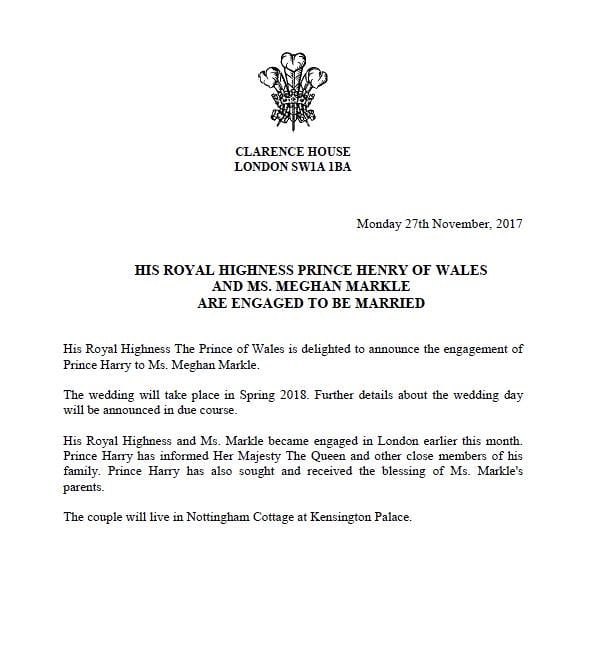The original question was whether a member of the C of E can marry a Roman Catholic in an Anglican ceremony, in a C of E church, according to C of E precepts. As it transpires Meghan is not RC so the example is irrelevant to the basic question. Purely according to C of E rules, so ignoring any RC precepts, the answer is yes. A Protestant and a Roman Catholic can marry in the C of E, however this does not depend on any inter-faith agreement. It is a corollary of the fact that anbody can mary in the Church of England. It is not necessary for either the bride or groom to be Christians of any kind.
There are Christian prayers, said by the vicar, but a Hindu can marry a Muslim, if they wish, in the C of E. A couple can choose to be married in the parish where either of them lives, or has previously lived, or where they have some other qualifying connection.
The right to marry in church is related to the role of the C of E as national church.
There are some exceptions, where a couple can marry according to civil law, but where a vicar is not obliged to marry them, though he has the legal power to do so if he chooses. One example was introduced by the Deceased Wife's Sister Act, 1907, which changed the law to allow a widower to marry his sister in law, but gave clergy the right not to officiate. By far the most common exception though is in the case of divorcees. A vicar has the civil power to marry divorcees, the civil right to refuse to do so, and the ecclesiastical expectation to do so only in exceptional cases.
Some clergy will simply refuse unless the couple are regular church members, in which case they may wish to ensure the divorcee understands what went wrong, was the innocent party, and understands and intends to make the appropriate commitments. Others are very accomodating.
There is a concept known as the Pauline Privilege which is based on 1 Corinthians 7 15, where Paul says that in the case where an unbelieving spouse leaves a believing spouse the believing spouse is free to remarry. In Roman Catholic canon law a person newly baptised, who married prior to baptism, and whose spouse has left, is free to remarry. The C of E has no such legalistic application, but it is a factor which may be taken into account, at the discretion of the vicar.
When Princess Anne remarried she did so in the Church of Scotland, which is less restrictive. Prince Charles and the Duchesss of Cornwall married in a civil ceremony, followed by a church blessing. Although this would have been discussed at the highest level (ie his Mum, the Archbishops and Commonwealth leaders) the reasons were confidential. Prince Charles was no longer a divorcee but, technically, a widower but Camilla had made very definite commitments in a sacramental context to her former husband. Furthermore it is possible their divorce was a result of the relationship with Charles. With Meghan's previous marriage it would not be difficult to argue that her previous marriage was not intended to be the lifelong commitment which the Church understands marriage to entail. She was not baptised, her ex-husband is Jewish, although, as the marriage took place at a beach resort in Jamaica it was under the auspices of the Queen of Jamaica, aka the Supreme Governor of the Church of England, or Harry's Granny.
In recent years same-sex marriage has been introduced in England, but no vicar or other minister of the C of E can officiate. This will not, of course, be a problem for Harry and Meghan.
Until 2015, if Prince Harry had married a Roman Catholic he would have lost his place in the succession.Of course, it is still the case that if any children were brought up Catholic they could never be monarch. The change follows a similar change in Sweden in 2000.
A final complication is that the Queen can veto any of the top six in the succession from marrying for dynastic purposes. If she did veto then the marriage can go ahead, but any children would be inelligible to become king or queen. Harry is currently fifth, behid his father, brother, nephew and niece. Happily Her Majesty shows no intention of objecting.

